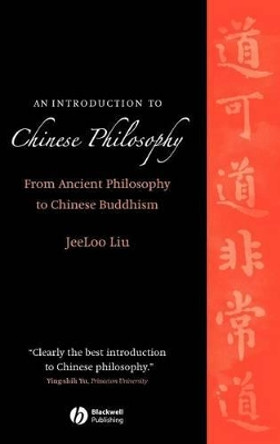Description
THIS BOOK WILL HELP YOU
to appreciate the variety, subtlety and wisdom of a unique philosophical tradition
to understand the major schools of thought that have shaped Chinese civilization
to draw on a rich cultural resource for different perspectives on questions of our time
to recognize traditional concepts that continue to inform Chinese thinking today China, an emerging superpower, is heir to an ancient civilization that owes little to outside influences.
This compelling introduction to Chinese philosophy describes the major traditional schools of thought that continue to underpin much of Chinese thinking today. It includes an outline of the country's early history, and traces the development of Chinese thought, which evolved in a continuum and generally in isolation from the rest of the world, from the earliest concerns with ritual and divination until the arrival of Buddhism in the first century. The best known strand of Chinese philosophy is Confucianism, which is basically a philosophy of relationships between different levels in a hierarchy, from the ruler down to the individual. In complete contrast, the almost contemporary school of Laozi espoused the wisdom and freedom of the Dao, based on the concept of alignment with nature and reverence for the environment. There followed schools of analytical logic, Legalism, and the arrival of Buddhism, which became associated in China with the mystical writings of Laozi, adding the dimension of compassion. These schools gradually fused in a neo-Confucian synthesis that went unchallenged in China until the encounter with the West. The book touches on the relationship between philosophical thought and politics, and brings the reader up to date by looking at the considered way in which China has adapted foreign ideas in modern times. Written by a distinguished author in clear, everyday language, it is a fascinating and accessible introduction to an important subject. ACCESS THE WORLD'S PHILOSOPHIES Simple Guides: Philosophy is a series of concise introductions to the major philosophies of the world. Written by experts in the field, these accessible guides offer a fascinating account of the rich variety of arguments, ideas and systems of thought articulated by different cultures in the attempt to explore and define the nature of reality and the meaning, purpose and proper conduct of life. The Simple Guides will appeal to analytical thinkers and spiritual seekers alike. Taken together, they provide a basic introduction to the evolution of human thought, and a point of reference for further exploration and discovery. By offering essential insights into the world views of different societies, they also enable travellers to behave in way that fosters mutual respect and understanding.
About the Author
Peter Nancarrow is an English writer and polymath. He is a scientist, linguist, expert in software development and the application of information technology, and teacher of Mandarin Chinese and Chinese calligraphy. After graduating in Natural Sciences from the University of Cambridge, he practised for six years as a Chartered Patent Agent before returning to Cambridge to study modern and Classical Chinese. While working there as a research associate he invented a device for entering Chinese character texts into data systems, later using this as a "keyboard" for a computer terminal in computational linguistic research. For most of this period he also taught Classical Chinese in the University. He speaks fluent French, Scandinavian languages, and Italian, and has a good knowledge of German and Russian. His other interests range from photography and music to dry-stone walling, with a view to maintaining the walls in his garden. The author of Early China and the Wall, published by Cambridge University Press, Peter Nancarrow has also written widely for journals and international conference papers. This lucid introduction to Chinese philosophy is a distillation of his great fund of knowledge of Chinese thought and civilization.
Book Information
ISBN 9781857334890
Author Peter Nancarrow
Format Paperback
Page Count 168
Imprint Kuperard
Publisher Kuperard






